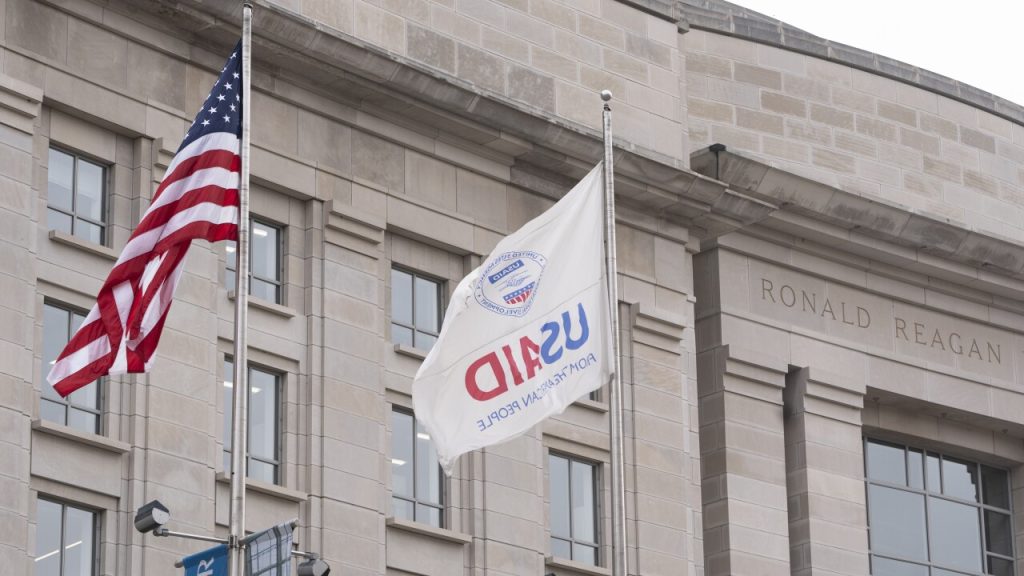In Denver today, Colorado leaders have come out strongly against the Trump administration’s efforts to dismantle USAID—a federal agency that plays a critical role in providing billions of dollars in humanitarian assistance around the world. The proposed changes have sparked a heated debate, with Colorado lawmakers arguing that defunding or dismantling USAID sends the wrong message about American values and global leadership.
A Close Look at USAID’s Role
USAID, the United States Agency for International Development, is responsible for delivering humanitarian aid and supporting development programs in over 130 countries. In fiscal year 2023 alone, USAID’s budget was just over $40 billion, a small fraction of the federal budget, yet its impact is immense. The agency works to fund schools in Haiti, provide disaster relief, improve healthcare, and support economic growth in some of the world’s most vulnerable regions.
For many who have worked with USAID, the agency represents not only American generosity but also a commitment to global stability and security. Colorado State Representative Junie Joseph, a Democrat from Boulder, has been an advocate for USAID for years. With experience as an intern for USAID in 2019 and as a global fellow in Côte d’Ivoire in 2016, Rep. Joseph knows first-hand the positive impact that the agency can have.
“What message are we sending by defunding these programs?” Joseph asked. “I worked on the front lines to protect vulnerable populations, particularly those living with disabilities. As an American, I was really proud to do that work and grateful to be a part of it.” Joseph, who was born in Haiti and has seen the work USAID has done in her community, believes that closing or drastically cutting the agency would undermine years of progress made in critical areas such as education, health, and disaster relief.
The Push to Dismantle USAID
The controversy stems from efforts by the Trump administration to reallocate or reduce funding for USAID. Critics argue that these moves are politically motivated and driven by a desire to cut what some consider unnecessary spending. Among the vocal supporters of these changes is billionaire Elon Musk, who recently took aim at USAID on his platform X (formerly Twitter). Musk claimed, “USAID is a criminal organization. Time for it to die.” His statement, backed by President Trump’s support, has fueled further debate on whether the agency should continue to exist in its current form.
Supporters of the proposed changes, like Republican U.S. Representative Lauren Boebert of Colorado’s 5th District, believe that the United States is spending too much on foreign aid. “America is tired of being the world’s ATM,” Boebert said. “We need to take care of our own people first. Bringing USAID under the jurisdiction of the State Department is a great step towards eliminating the massive amounts of taxpayer dollars that we waste on foreign aid!”
However, many Colorado lawmakers and other critics view this as an attack on a vital part of American global leadership. U.S. Representative Brittany Pettersen, a Democrat from Colorado’s 7th District, warned, “Nobody voted for Elon Musk, and neither he nor anyone he deputizes have any business anywhere near sensitive personal information about Americans or federal workers. He is unqualified and unauthorized to make decisions about agencies approved and funded by Congress.” Pettersen argued that dismantling USAID could harm the country’s safety and security and further damage America’s reputation around the world.
A Threat to Global Stability
U.S. Representative Diana DeGette of Denver, who represents the 1st District, described the situation as bordering on authoritarianism. “USAID is critical in advancing U.S. national security interests, providing humanitarian aid and strengthening global stability,” DeGette said. She added that allowing an unelected billionaire like Elon Musk to influence such decisions is not governance—it is an abuse of power that could have dangerous consequences.
Meanwhile, Democratic U.S. Representative Jason Crow, representing Aurora’s 6th District, stressed that while a president can change policies within agencies, he does not have the authority to destroy agencies created by Congress. “The president does not have the authority to destroy or dismantle agencies that have been created by Congress,” Crow explained. He argued that any major changes to USAID must come through proper legislative channels, where elected representatives can debate and decide on the best course of action.
The Colorado Perspective
Colorado lawmakers are united in their concern that dismantling USAID would not only harm global humanitarian efforts but also send a negative message to the world. Rep. Junie Joseph summed up the sentiment by stating, “When we defund an organization like USAID or close it, we’re sending a message, and that’s the opposite message we should be sending to the world.” For many in Colorado, USAID represents an investment in global stability and human progress—a message that stands in sharp contrast to the isolationist and inward-looking policies promoted by some in the current administration.
The debate in Colorado is particularly poignant given the state’s commitment to both domestic and international progress. Colorado has been a leader in environmental initiatives, education, and healthcare, and many of its leaders believe that the values that drive these initiatives are in line with the work of USAID. Cutting back on USAID, they argue, would be a step backward, not only for the United States but also for the global community that benefits from its programs.
The Role of the State Department
In a move that has further stirred the debate, U.S. Secretary of State Marco Rubio recently announced that he is the acting administrator of USAID, effectively placing the agency under the control of the State Department. This decision is seen by many as an attempt to reshape the agency’s priorities and reduce its focus on international humanitarian work. Critics argue that this change could lead to a shift in focus away from those most in need, undermining the longstanding mission of USAID to help vulnerable populations around the world.
The Importance of Responsible Foreign Aid
Foreign aid has long been a cornerstone of American foreign policy. Through USAID, the United States has helped to build schools, improve healthcare systems, and support economic development in some of the world’s poorest regions. These programs not only improve lives but also help to create a more stable and secure global environment—one that ultimately benefits the United States by reducing the conditions that lead to conflict and instability.
For many lawmakers, including those in Colorado, the debate over USAID is about more than just dollars and cents. It is about the values that America wishes to project on the world stage. As U.S. Representative Brittany Pettersen noted, any attempt to dismantle or significantly alter USAID is a threat to national security and global stability. “I’ll do everything I can in Congress to fight back against this illegal, unprecedented, and reckless abuse of power,” she stated.
The Broader Debate on Foreign Aid
The controversy over USAID is part of a broader debate about the role of foreign aid in American policy. On one side, proponents argue that foreign aid is essential for promoting global stability, fostering economic growth, and building goodwill. On the other side, critics contend that such aid often represents wasted taxpayer dollars that could be better spent on domestic issues.
Supporters of USAID point out that the agency’s budget is less than one percent of the federal government’s total spending, yet its impact is significant. In fiscal year 2023, USAID provided assistance in 130 countries, funding vital programs that range from disaster relief to economic development. They argue that cutting back on this aid not only harms the countries that rely on it but also diminishes America’s role as a global leader.
In Colorado, lawmakers are urging their federal colleagues to consider the long-term consequences of reducing support for USAID. They argue that a strong commitment to humanitarian aid is a sign of strength, not weakness, and that it helps to build a safer, more stable world for everyone. “This isn’t about handing out free money,” Rep. Diana DeGette explained. “It’s about investing in our future and in the future of a more secure world.”
The Future of USAID and American Leadership
As the debate over USAID continues, the question remains: What message will America send to the world if it dismantles an agency that has long been a symbol of its commitment to global well-being? For many Colorado lawmakers, the answer is clear. Cutting back on USAID would undermine American values and weaken the country’s ability to promote freedom, stability, and human dignity around the world.
The Trump administration’s efforts to alter USAID have drawn sharp criticism not only from Colorado but from across the nation. Lawmakers and citizens alike are questioning whether these changes truly serve the best interests of the United States. As Democratic Representative Jason Crow put it, “The president does not have the authority to destroy or dismantle agencies that have been created by Congress.” This sentiment echoes throughout Colorado, where leaders are standing up for the values of responsible governance and international cooperation.
Conclusion
The fight over USAID is far from over. In Colorado, lawmakers continue to oppose efforts to dismantle the agency, arguing that it plays a crucial role in promoting global stability, advancing national security, and embodying American values. With voices like those of Representative Junie Joseph, Representative Brittany Pettersen, and Representative Diana DeGette leading the charge, it is clear that many in Colorado believe that the work of USAID should be preserved and strengthened, not undermined.
As the debate unfolds on Capitol Hill and in newsrooms across the country, one thing remains clear: foreign aid, as embodied by USAID, is more than just a line item in a budget—it is a cornerstone of American leadership and a vital tool in the fight to improve lives around the globe. For Colorado and for the United States as a whole, the message must be one of commitment, compassion, and long-term vision. Dismantling USAID would send a dangerous signal to the world and jeopardize the future of countless vulnerable communities that rely on its support.
Disclaimer – Our editorial team has thoroughly fact-checked this article to ensure its accuracy and eliminate any potential misinformation. We are dedicated to upholding the highest standards of integrity in our content.





More Stories
Colorado Lawmakers Stand Strong Against Trump’s Plan to Dismantle USAID
Colorado Lawmakers Stand Strong Against Trump’s Plan to Dismantle USAID
Colorado Lawmakers Stand Strong Against Trump’s Plan to Dismantle USAID